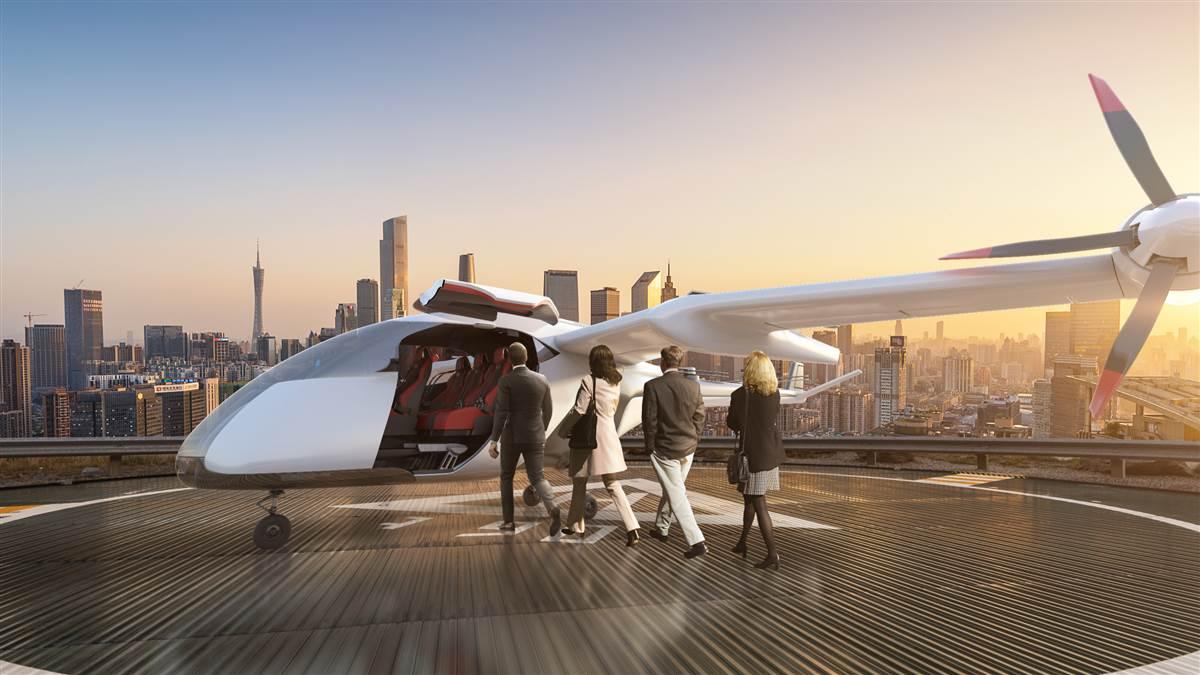Electric aircraft propulsion and how it works
There’s more than one way to propel an airplane.
While it’s true that most aircraft engines today run on fossil fuels like Jet A, Jet B, Avgas or diesel, many readers may be shocked (pun intended) to learn that electric technology will change the way we think about aircraft propulsion – and sooner rather than later.
In fact, around 215 types of electric-powered aircraft are currently being developed worldwide, and industry observers say electric airplanes will be commonplace before the end of the next decade.
At Honeywell, we’re applying our unique expertise from across our Engines and Power Systems portfolio and working with DENSO, a world leader in electric motors and controllers for the automotive industry, to transform aircraft propulsion as we know it. Together, we aim to deliver innovative and integrated solutions to current (retrofit) and future (clean-sheet) customers in the rapidly-growing electric aircraft space.
The logical path toward electric propulsion
Two key technologies for the future of flight have a long history. Electric motors were invented in the 1830s, and battery-powered cars were first manufactured in the 1890s. Their descendants are found across various industries today, including in modern airplanes that already rely on electricity to power avionics, fly-by-wire, actuation and other systems, and perform tasks once done by mechanical equipment.
When we talk about electric propulsion, we’re talking about a range of propulsion architectures designed to meet the needs of specific aircraft that are using electrically driven motors to provide thrust. There is no “one-size-fits-all” or “best” solution without understanding the key customer requirements and mission profile of an aircraft.
Honeywell has studied several different propulsion architectures – ranging from the legacy engines on most aircraft today to all-electric, battery-based solutions. There are various hybrid architectures across that continuum – including Turboelectric, Partial Turboelectric, Series Hybrid, Parallel Hybrid and Series-Parallel Hybrid. All of these deploy electric motors in various ways as part of the overall propulsion system.
How electric propulsion works
In contrast to propulsion systems built solely around an internal combustion engine, all-electric and hybrid-electric architectures utilize an electric motor. The motor can be the sole source of thrust or it can be used in combination with a conventional engine, by either providing another source of thrust or even a boost of power to the propulsion system during key stages of flight.
In addition to the motor, a fully-integrated electric propulsion system includes other critical components like motor controller hardware and software, gearboxes and cooling systems. This integrated system is known as an electric propulsion unit (EPU), and Honeywell and DENSO are developing state-of-the-art solutions to meet today’s and tomorrow’s needs.
While battery technology matures, hybrid-electric aircraft will need both batteries and other power sources – like ultraefficient generators or fuel cells – to power the aircraft, recharge the batteries and improve aircraft safety, efficiency and range.

What’s behind the Honeywell-DENSO partnership?
There is important work to be done to ensure quality and certification to aviation standards, which are very familiar to Honeywell and other experienced aviation companies. But many other challenges in meeting these new customers’ needs are more germane to the automotive industry. Our partner DENSO has the proven ability to mass-produce complex systems – like EPUs – at scale, while maintaining the highest standards of quality and reliability.
That’s why Honeywell and DENSO decided to form an alliance, to combine the respective strengths of two leaders, to create best-in-class electric propulsion units.
The Honeywell/DENSO team is already working on some very exciting development programs, and we’re always looking for new opportunities.
